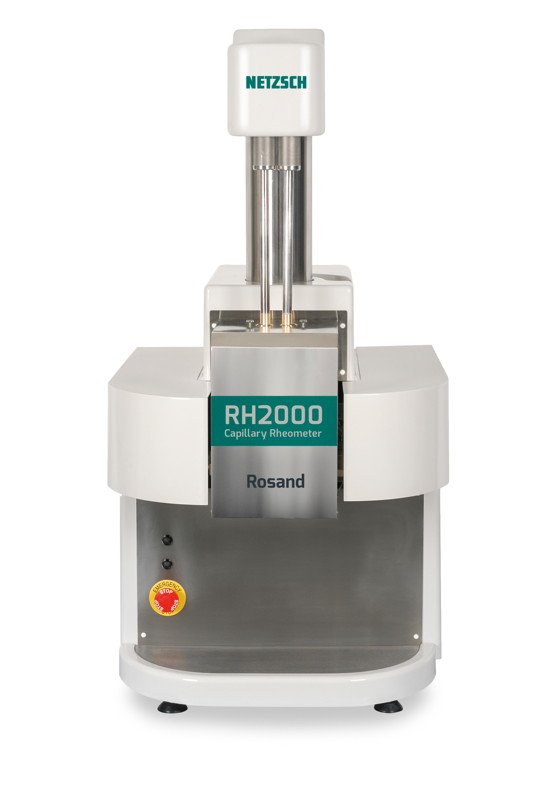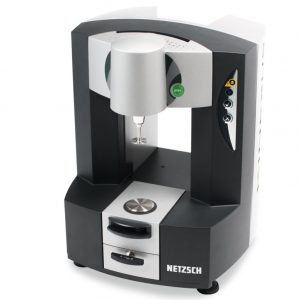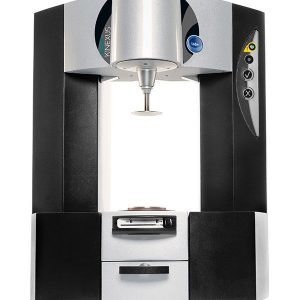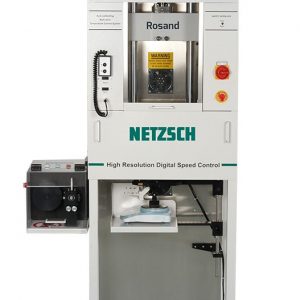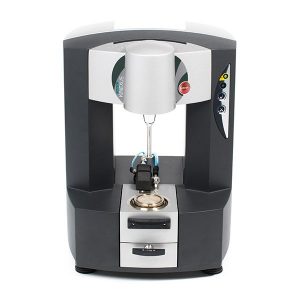Rosand RH2000 Bench Top Capillary Rheometer
The Rosand RH2000 bench top capillary rheometer provides highly flexible measurement capabilities and configuration options for a wide variety of applications – from polymer melts to pharmaceutical processing, and from foodstuffs to inks and coatings.
- Single and twin bore barrel options for cost effective routine measurement capability through to dual measurements for simultaneous assessment of absolute shear viscosity and extensional (elongational) viscosities.
- Maximum drive force (up to 20kN) and maximum speed (up to 1200mm/min) capabilities enable a wide range of shear rates, and correlation with many real material processing conditions.
- Rigid one-piece cantilever frame design providing extreme mechanical strength and stiffness for a compact bench top unit.
- Unique swivel head design gives easy access to the rheometer barrel for sample loading and instrument cleaning.
- Range of optional barrel sizes and barrel materials to permit measurement of thermally-sensitive, chemically-aggressive or aqueous-based samples.
- Wide range of high precision tungsten carbide dies as standard to cover all materials and test types.
- Easily interchangeable melt pressure transducers to cover all test requirements – configured with low noise, triple-stage amplifiers for optimized measurement sensitivity at the die entrance.
- Proprietary bi-modal speed control algorithms to optimize shear rate measurement range for a particular die.
- Precise sample temperature control using three independent zone heaters, with 10 times DIN accuracy platinum resistance thermometers. High temperature (500°C maximum) and cooling coil options also available.
- Nitrogen purge option available to minimize sample degradation.
- Accessories for die swell measurement for evaluation of elastic samples.
- Easy to use Flowmaster software with full range of tests and analyses for shear and extensional viscosity, as well as determining sample stability, wall slip and melt fracture.
Key applications:
- Characterization of polymer or suspension rheology across a range of shear rates and temperatures
- Simulation of extensional viscosity dominated processes such as fiber spinning, blow molding, film blowing and thermoforming
- Assessment of extrusion behavior for processes such as injection molding and hot melt extrusion
- Evaluation of material behavior at process relevant shear rates such as high-speed coating and printing applications
- Detection of polymer instabilities such as melt fracture and thermal degradation
- Measurement of material elasticity and related properties such as die swell
Industry applications:
- Polymers
- Coatings
- Ceramics
- Metals
- Pharmaceuticals
- Sealants
- Foods
- Inks

